February 28, 2020
Free Mini Seminar on Sustainable Filmmaking
ฟรี งานสัมมนา เรื่องการผลิตภาพยนตร์อย่างยั่งยืน และเป็นมิตรต่อสิ่งแวดล้อม
Creative Migration and The 60 Second Film Festival are teaming up to offer local filmmakers the information, resources and tools necessary to incorporate sustainable practices into their work. We will join The 60 Second Film Festival event on February 28th 2020 at 19:00 and 20:15, to give a series of short and informative talks on sustainable practices in filmmaking. Look for us on the 2nd floor at Whiteline | Silom 8 on the day!
︎
ครีเอทีฟ ไมเกรชั่น ร่วมกับ เทศกาลภาพยนตร์ 60 วินาที (The 60 Second Film Festival) ในการให้ความรู้และคำแนะนำ สำหรับการผลิตภาพยนตร์อย่างยั่งยืน และเป็นมิตรต่อสิ่งแวดล้อม โดยเราจะเข้าร่วมงาน The 60 Second Film Festival ในวันที่ 28 กุมภาพันธ์ 2563 เวลา 19.00 และ 20.15 น. เพื่อพูดคุยถึงการดำเนินงานสร้างสรรค์ภาพยนตร์อย่างยั่งยืน มาร่วมฟังกันได้ที่ชั้น 2 แกลอรี่ไวท์ไลน์ (Whiteline) สีลมซอย 8 ในวันและเวลาดังกล่าว

THE 60 SECOND FILM FESTIVAL
WHAT IS IT?
The 60 Second Film Festival is a fun collaborative film festival event. This event encourages the local and international film community to create short films, a minute long or less (including titles and credits). The 60 Second Film Festival is a fantastic opportunity to showcase your skill and creativity.
WHEN IS IT?
February 28, 2020 at 7 PM – 11:30 PM @ Whiteline on Silom Soi 8 in Bangkok.
HOW TO PARTICIPATE?
Submit your film by February 20th, 2020 here
Any subject, any theme, any style. All films must be 60 seconds long or less (including credits).
WHY SHOULD YOU PARTICIPATE?
1. To get your work seen and by respected professionals in this field, and appreciated by an audience of passionate film lovers.
2. Awesome prizes! (Read more below to find out more about the prizes)
The 60 Second Film Festival is offering prizes in the following categories:
BEST FILM: 20,000 THB
Any subject, any style, all films are considered.
BEST FILM about our ENVIRONMENT: 20,000 THB
Our air is polluted, the world is getting hotter, water levels are rising. Address these, or any other pressing environmental or sustainability issue in the form of a short documentary, science fiction, comedy, or any other conceivable style. Your film will be considered for this prize.
Mbrella Films Award for BEST DIRECTOR
Any subject, any style, all films are considered. The winner receives absolutely amazing production package from Mbrella Films. Find more information about this prize here.
The Mr Black DARKEST FILM AWARD
Supported by Mr Black Cold Press Coffee Liqueur. Includes a Mr Black t-shirt and a bottle of Mr Black Cold Press Coffee Liqueur.
︎
งานนี้คืออะไร ?
เทศกาลภาพยนตร์ 60 วินาที เป็นงานเทศกาลภาพยนตร์ที่เกิดจากความร่วมมือของหลากหลายองค์กร งานนี้สนับสนุนให้ผู้คนในวงการภาพยนตร์ทั้งไทยและนานาชาติได้ผลิตภาพยนตร์สั้น ยาว 1 นาที หรืออาจสั้นกว่านั้น (รวมไตเติ้ลและเครดิต) เทศกาลนี้เป็นโอกาสอันดีที่คุณจะได้แสดงทักษะและความคิดสร้างสรรค์ของคุณ
งานเมื่อไหร่ ?
วันที่ 28 กุมภาพันธ์ 2563 เวลา 19.00 - 23.30 น. ณ แกลลอรี่ไวท์ไลน์ สีลม ซอย 8
จะเข้าร่วมได้อย่างไร ?
ส่งภาพยนตร์ของคุณได้ ที่นี่ ภายในวันที่ 20 กุมภาพันธ์ 2563
เปิดรับทุกเรื่อง ทุกแนว และทุกรูปแบบ โดยภาพยนตร์จะต้องมีความยาว 60 วินาที หรือน้อยกว่า (รวมเครดิตท้ายเรื่อง)
ทำไมคุณควรเข้าร่วม ?
- เพื่อให้งานของคุณได้เผยแพร่สู่ผู้เชี่ยวชาญจากหลากหลายวงการ รวมถึงผู้ชมทั่วไปที่สนใจในภาพยนตร์ฃ
- รางวัลมากมาย! (ข้อมูลรางวัล ด้านล่าง)
เทศกาลภาพยนตร์ 60 วินาที มีรางวัลให้มากมายในหมวดหมู่ดังต่อไปนี้
- ภาพยนตร์ยอดเยี่ยม: 20,000 บาท
พิจารณาจากภาพยนตร์ทุกเรื่องทุกแนว - ภาพยนตร์ด้านสิ่งแวดล้อมยอดเยี่ยม: 20,000 บาท
พิจารณาจากภาพยนตร์ที่เกี่ยวข้องกับเรื่องมลภาวะทางอากาศ โลกร้อน ระดับน้ำทะเลที่เพิ่มสูงขึ้น หรือเรื่องอื่น ๆ ที่เป็นประเด็นทางด้านสิ่งแวดล้อมและความยั่งยืน ในรูปแบบของสารคดีสั้น บันเทิงคดีแนววิทยาศาสตร์ แนวตลก หรือรูปแบบและแนวอื่น ๆ - รางวัล Mbrella Films สำหรับผู้กำกับยอดเยี่ยม
พิจารณาจากภาพยนตร์ทุกเรื่องทุกแนว ผู้ชนะรางวัลจะได้รับแพคเกจการผลิตงานจาก Mbrella Films รายละเอียดเพิ่มเติมเกี่ยวกับรางวัลคลิกที่นี่ - รางวัล Mr Black DARKEST FILM
สนับสนุนโดย Mr Black Cold Press Coffee Liqueur ของรางวัลเสื้อยืด Mr Black และขวดน้ำ Mr Black Cold Press Coffee Liqueur - ภารกิจการผลิตภาพยนตร์อย่างยั่งยืนและเป็นมิตรต่อสิ่งแวดล้อม !
สนับสนุนโดยครีเอทีฟ ไมเกรชั่น รายละเอียดเพิ่มเติมด้านล่าง
SUSTAINABLE FILMMAKING CHALLENGE!
Supported by Creative Migration. Learn more below:
WANT TO WORK SUSTAINABLY? Want to contribute to positive change in the filmmaking industry? Join the SUSTAINABLE FILMMAKING CHALLENGE! Have your work reviewed and recognized by leaders in the field of sustainable filmmaking!
Filmmakers are required to incorporate at least 8 sustainable methods of production outlined below. They must share about their production process in real time through 60 Second Film Festival’s social media channels.
Creative Migration will invite participants who meet this challenge to share their work with an audience of experts and industry professionals for a special screening at Bangkok 1899.
One prize winner will be paired with a sustainability expert and film industry professional to mentor them for their next production in order to make it as sustainable as possible.
Inspired by our past experience with Project Green (Nomad Films/ Global Action Plan Sweden), sustainable methods of production (AT LEAST EIGHT (8), chosen from the provided list) include:
Pre-Production
- Production meetings will be held locally and will be accessible via all modes of transport
- Communication between production staff/crew will be via e-mail and online forums/documents, as well as via telephones
- All accounting/administrative paperwork will be done online; printing will be kept to a minimum
- Pre-production office/headquarters should have recycling bins available and staff encouraged to bring their own reusable containers
Production
Location
- If possible, shoot at a location that is easily accessible via bus, train, bike, foot and/or car.
- Regardless of where the set is – middle of the desert vs. a busy city street – be mindful of the production’s impact on the environment and avoid damaging the surroundings with production-related activities.
- Make sure to remove all equipment and remnants from production – leave NOTHING behind after production. This includes used tape for lighting, grease spills, gum wrappers, cigarette butts, etc.
Equipment
- Memory: P2 cards should be used when possible, and all data should be captured to external hard drives for memory storage. If film/tape stock is necessary filmmakers should capture footage nightly and reuse tape throughout production.
- Audio: memory cards, as opposed to tape, will be used to capture audio
- Lighting: Use of natural light when possible and/or battery powered lighting devices and/or solar powered lighting. All lighting, regardless of source, should be turned off or powered down when not in immediate use.
Travel Accommodations
- Camping - implementing Leave No Trace principles
- Staying with friends
- Intentional/Artist Communities - visiting unique places on our route that use sustainable practices in their everyday lives.
Transportation/Travel
- Vehicles used throughout production should be electric or hybrid; absolutely no SUVs or diesel trucks permitted on sustainable sets or for use in-between locations
- If air transport is necessary, all shipments and/or flights should be combined to minimize the number of planes necessary for transport. Arrival/departure times should be arranged to minimize car trips to airport, train station or bus station.
Meals/Catering
- Production staff/crew should bring their own reusable plates and utensils, as well as cloth napkins, no paper/plastic plates or utensils will be provided
- Drinks will be dispensed via large containers and staff/crew/talent should bring coffee mugs and/or water bottles for drinking; no paper/plastic cups will be provided.
- On-set catering should come from local restaurants and/or local vendors who use local suppliers (perhaps production location organized in order to make this possible).
- Food should be biked or walked to set, and production should supply caterer with reusable containers for transporting. Additionally, canvas/cloth bags should be used as opposed to paper/plastic
- Food waste should be composted when appropriate; uneaten food should be donated to local shelter(s)
Waste Disposal
- All materials that could be re-used will be (tape re-rolled and used a second/third time, call sheets used as scrap paper, etc.)
Post-Production
- Post-Production office and edit suite will be accessible via all modes of transport.
- Communication between production staff/crew will be via e-mail and online forums/documents
- Equipment should be turned off when not in use; monitors can be powered down when computers need to run overnight
- All accounting/administrative paperwork will be done online; printing will be kept to a minimum
- Post-Production office/headquarters should have recycling bins available, and staff encouraged to bring their own reusable containers
︎
คุณอยากจะทำงานอย่างยั่งยืนไหม? อยากจะเป็นส่วนหนึ่งในการสร้างการเปลี่ยนแปลงที่ดีในวงการการผลิตภาพยนตร์รึเปล่า? มาร่วมกับเราใน ภารกิจการผลิตภาพยนตร์อย่างยั่งยืน และเป็นมิตรต่อสิ่งแวดล้อม (Sustainable Filmmaking Challenge) งานของคุณจะได้รับการรีวิวจากผู้เชี่ยวชาญในการสร้างสรรค์ผลงานอย่างยั่งยืน
ผู้ผลิตภาพยนตร์จะต้องทำตามข้อแนะนำการผลิตภาพยนตร์ที่เป็นมิตรต่อสิ่งแวดล้อมให้ได้อย่างน้อย 8 ข้อ โดยจะต้องบันทึกและเผยแพร่กระบวนการผลิตภาพยนตร์ผ่านทางสื่อออนไลน์ของเทศกาลภาพยนตร์ 60 วินาที
ครีเอทีฟ ไมเกรชั่น จะเชิญผู้เข้าร่วมที่สามารถทำตามข้อแนะนำนี้ได้มาแสดงผลงานของตนเองให้ผู้เชี่ยวชาญและคนในวงการได้รับชม ในการฉายหนังรอบพิเศษที่ Bangkok 1899
ผู้ชนะเลิศจะได้จับคู่กับผู้เชี่ยวชาญด้านความยั่งยืน และคนในวงการภาพยนตร์ ในการช่วยให้คำแนะนำการผลิตงานในอนาคต เพื่อที่ให้เป็นมิตรต่อสิ่งแวดล้อมมากที่สุด
ข้อแนะนำการผลิตภาพยนตร์ที่เป็นมิตรต่อสิ่งแวดล้อม (ตามรายละเอียดด้านล่าง) ได้รับแรงบันดาลใจมาจากโครงการที่ผ่านมาของเรา Project Green (Nomad Films/ Global Action Plan Sweden)
ขั้นเตรียมการผลิต (Pre-Production)
- การประชุมการผลิตจะต้องจัดขึ้นในพื้นที่ท้องถิ่นและสามารถเดินทางถึงได้โดยวิธีเดินทางทุกรูปแบบ
- ใช้วิธีอีเมล แชร์เอกสารทางออนไลน์ หรือใช้โทรศัพท์ในการติดต่อสื่อสารกันระหว่างทีมงาน
- ใช้กระดาษให้น้อยที่สุดสำหรับเอกสารการเงินและเอกสารดำเนินการต่างๆ หากเป็นไปได้ให้ใช้ไฟล์ดิจิตอล
- ออฟฟิศหรือที่ทำงานจะต้องมีถังขยะสำหรับรีไซเคิลขยะ และสนับสนุนให้ทีมงานทุกคนนำภาชนะที่นำกล้บมาใช้ได้มาใช้
ขั้นผลิต (Production)
สถานที่
- หากเป็นไปได้ ให้ถ่ายและเลือกสถานที่ถ่ายทำที่สามารถเดินทางถึงได้โดยการขนส่งสาธารณะ
- ไม่ว่าสถานที่ถ่ายทำคือที่ไหนก็ตาม จะต้องคำนึงถึงผลกระทบต่อสิ่งแวดล้อมเสมอ โดยหลีกเลี่ยงการทำลายหรือการก่อให้เกิดความเสียหายต่อสภาพแวดล้อมโดยรอบ อันเป็นผลมาจากการผลิตงาน
- เก็บวัสดุอุปกรณ์ และเศษชิ้นต่าง ๆ ที่มาจากการถ่ายทำ จะต้องไม่ทิ้งอะไรไว้หลังถ่ายทำเสร็จ รวมไปถึงเทป คราบน้ำมัน หมากฝรั่ง ก้นบุหรี่ ฯลฯ
การเดินทาง
- พาหนะสำหรับการเดินทางที่ใช้ตลอดการถ่ายทำควรเป็นยานยนต์ไฟฟ้าหรือไฮบริด ต้องไม่ใช้รถยนต์อเนกประสงค์ (SUV) หรือรถบรรทุกดีเซลในการถ่ายทำ หรือการเดินทางไปถ่ายทำ
- หากจำเป็นต้องเดินทางทางอากาศ การขนส่งและ/หรือเที่ยวบินควรรวมกัน เพื่อลดจำนวนรอบบินในการเดินทาง ลดการเดินทางโดยรถยนต์ไปยังสนามบิน โดยใช้รถไฟฟ้า หรือรถประจำทางแทน
อุปกรณ์
- การ์ดหน่วยความจำ (Memory): หากเป็นไปได้ ควรใช้การ์ด P2 ข้อมูลทั้งหมดที่ถ่ายทำควรเก็บไว้ใน External Hard Drives
- เสียง: ใช้การ์ดหน่วยความจำในการบันทึกเสียงแทนการใช้เทป
- ไฟ: หากเป็นไปได้ ให้ใช้แสงธรรมชาติ และ/หรือ อุปกรณ์ไฟที่ชาร์จแบตเตอรี่ได้ หรือไฟที่ใช้พลังงานจากแสงอาทิตย์ โดยไฟที่ใช้ไม่ว่าจะเป็นแบบไหน จะต้องปิดทันทีหากไม่ได้ใช้งาน
อาหารการกิน
- ทีมงานควรนำจานชามช้อนส้อมที่นำกลับมาใช้ใหม่ได้มาใช้ รวมไปถึงผ้าเช็ดปาก จะไม่แจกจานชามช้อนส้อมพลาสติก/กระดาษให้
- ควรมีถังน้ำดื่ม ทีมงานควรนำแก้วหรือขวดน้ำมาเอง จะไม่แจกแก้วพลาสติก/กระดาษให้
- อาหารการกินควรมาจากร้านอาหารหรือผู้จัดจำหน่ายในพื้นที่
- เศษอาหารควรนำไปหมักทำเป็นปุ๋ย อาหารเหลือที่ยังไม่ได้กินควรนำไปบริจาคให้ผู้ที่ต้องการ
ขั้นหลังการผลิต (Post-Production)
- ออฟฟิศหรือที่ทำงานขั้นหลังการผลิตต้องสามารถเดินทางถึงได้โดยวิธีเดินทางทุกรูปแบบ
- ใช้วิธีอีเมล แชร์เอกสารทางออนไลน์ หรือใช้โทรศัพท์ในการติดต่อสื่อสารกันระหว่างทีมงาน
- ต้องปิดอุปกรณ์เครื่องใช้เมื่อไม่ได้ใช้งาน หน้าจออาจตั้งไว้ในโหมดประหยัดพลังงาน หากจำเป็นต้องเปิดทิ้งไว้ข้ามคืน
- ใช้กระดาษให้น้อยที่สุดสำหรับเอกสารการเงินและเอกสารดำเนินการต่างๆ หากเป็นไปได้ให้ใช้ไฟล์ดิจิตอล
- ออฟฟิศหรือที่ทำงานจะต้องมีถังขยะสำหรับรีไซเคิลขยะ และสนับสนุนให้ทีมงานทุกคนนำภาชนะที่นำกล้บมาใช้ได้มาใช้


